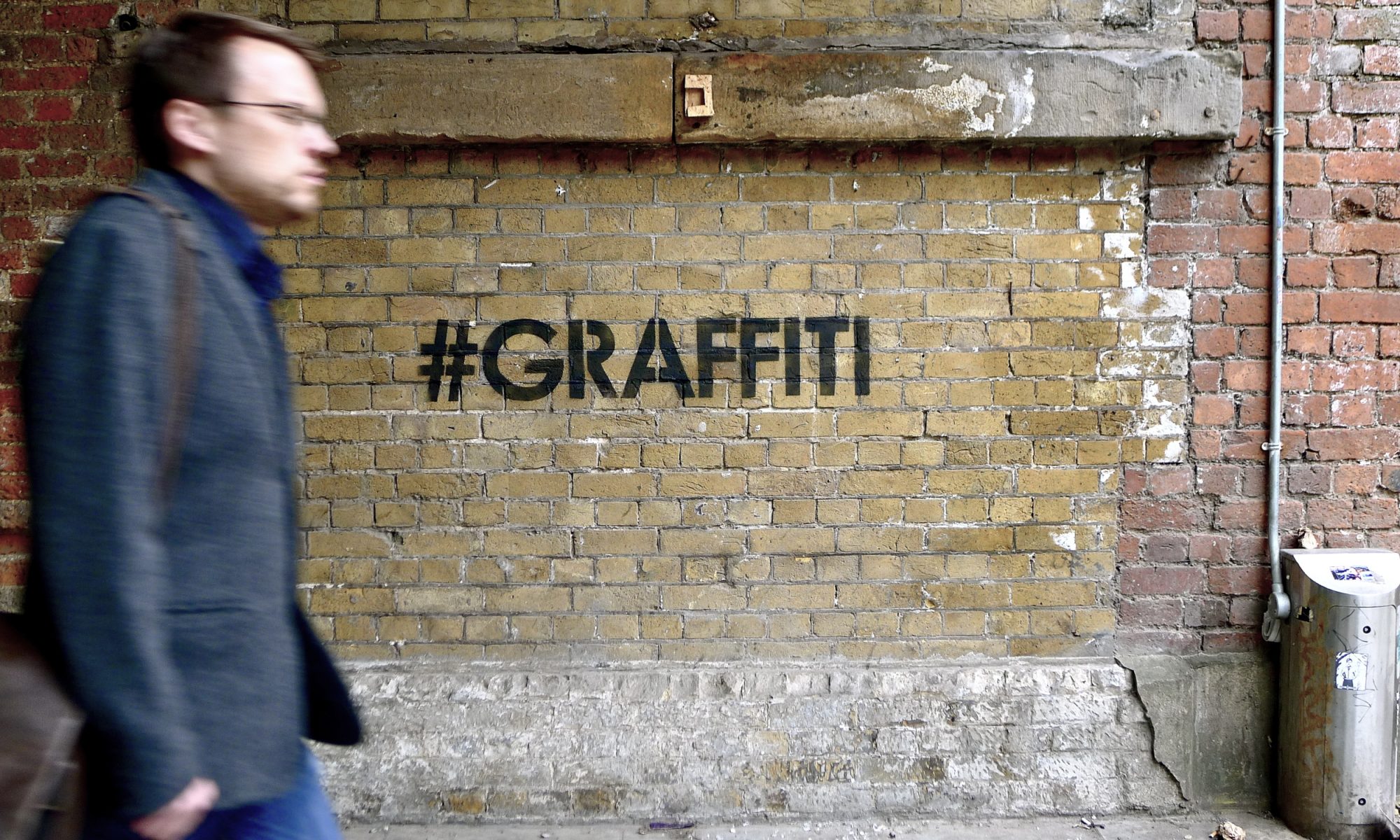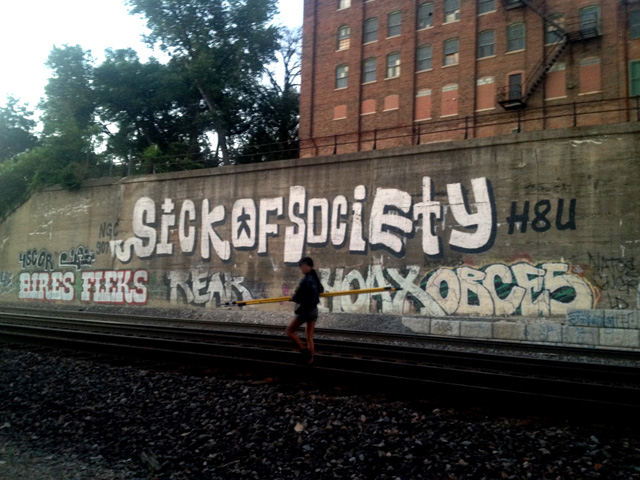
A little over a year ago, I interviewed Droid 907 for the release of his first SOS zine, Sex or Suicide. This summer, through Carnage, he is sharing his past year of adventures riding through the United States. As with the previous volume, Sick of Society exists on the fringes of the mainstream where Droid 907 finds comfort from a society he abhors. As much as the title gives a negative connotation, the pages of the zine are instead filled with intimate portraits of those the writer cares for, including friends both here and departed. Using typewriter gifted by Amanda Wong, the author redacts locations, crosses out spelling errors while leaving in others, adding characterization to himself while continuing his narration. His continued fascination with analog technologies can be seen not only in the text, but through the production of the zine itself. Unlike the Internet, print production contains a finite means of dissemination (albeit large editions of 400). Within the hand silkscreened pages and closed-edition volumes, Droid completely placed himself on the fringes of society in which he exists and documents. Fittingly, when sent interview questions, the Sick of Society author returned with pages fresh from his typewriter rather than a Word Document.
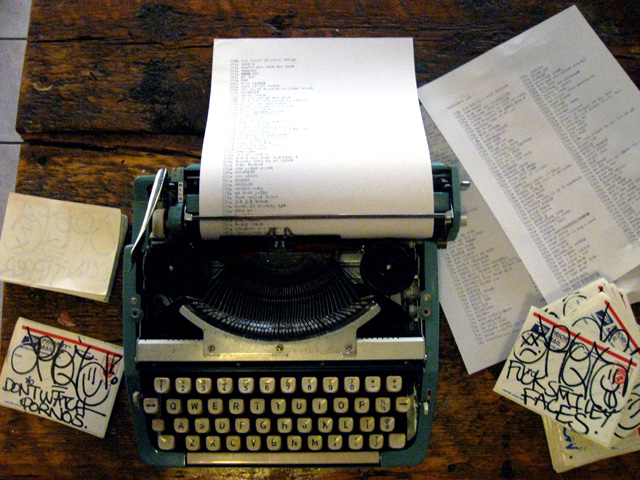
Rhiannon: So, the last typewriter for S.O.S. was found by the train tracks. What did you write Sick of Society on?
Droid:

R: With equally a pessimistic title as the first zine, what makes you Sick of Society?
D:

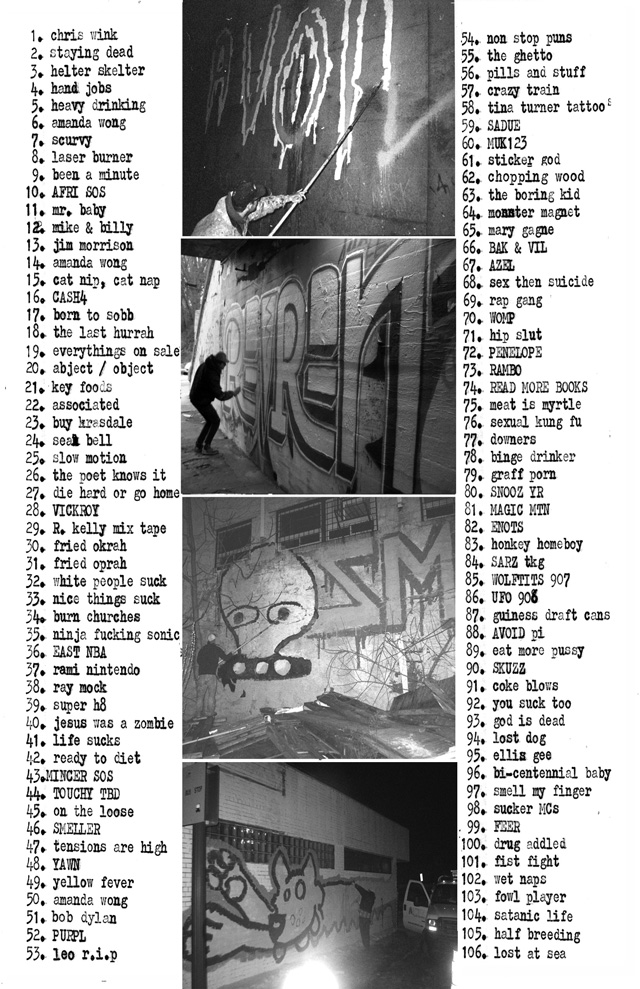
R: From the cover, obsessive lists are prominent throughout the book. What do they document? Is there a specific reason that you chose these phrases?
D:

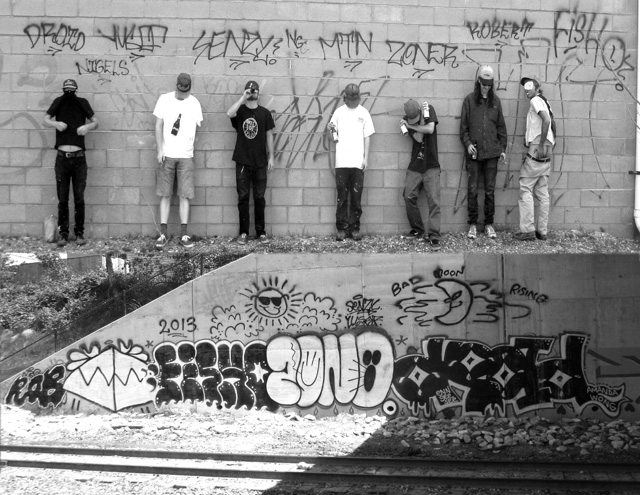
R: Intimacy also plays a crucial role in your zines’ importance, to me. Whether it is a person in passing or someone you deeply care for, the same level of care is given to their characterization. How do these juxtapose and fit with the hatred of society? (Because they are all outsiders?)
D:

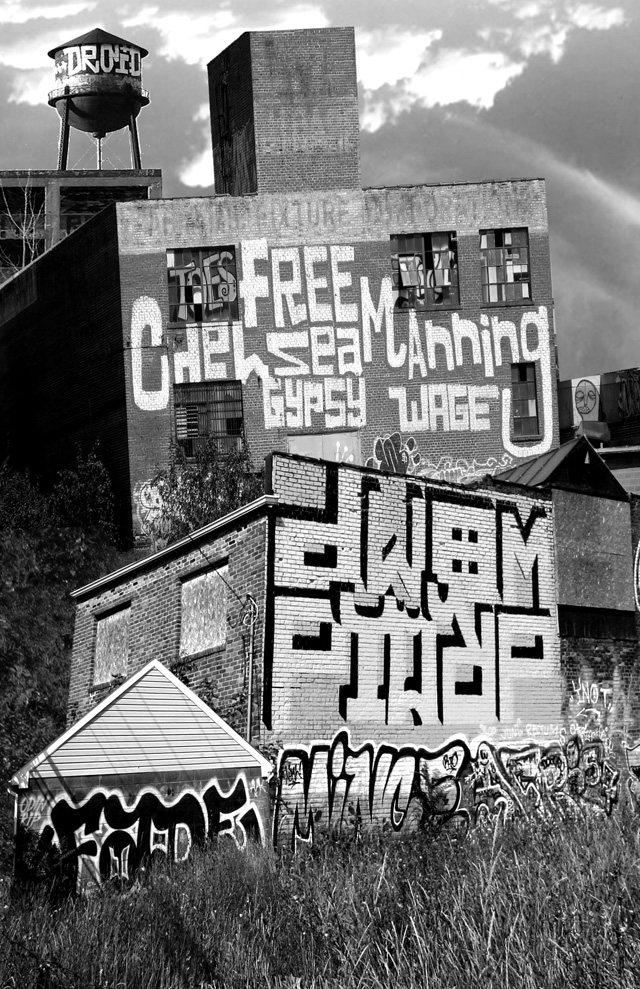
R: These personal short stories are juxtaposed with photos from your graffiti adventures. How do you see the two relating?
D:

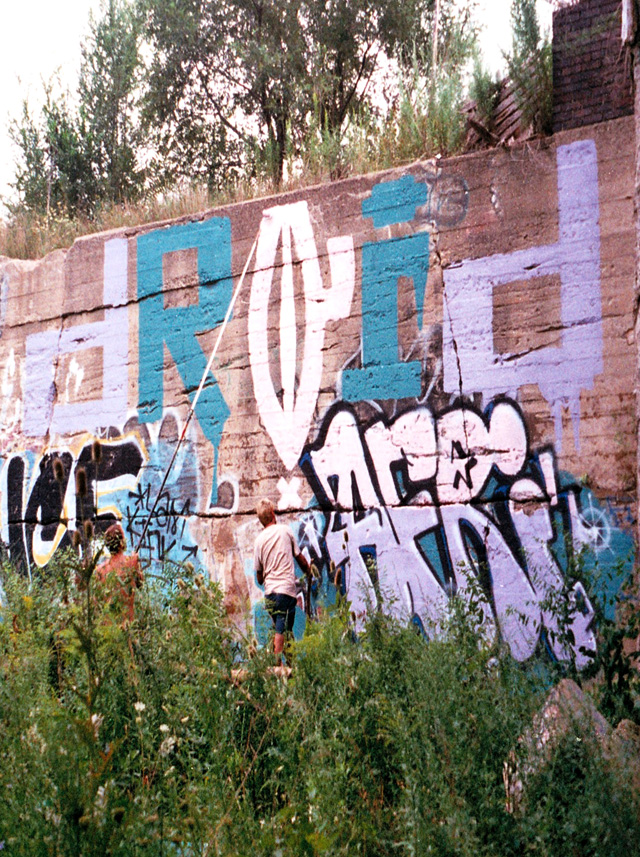
R: More directly these two threads weave together through the stories of your friend Afrika. Why was it important for you to share his life with readers? As a means to cope with loss?
D:

R: Like the Border Trilogy or Evil Dead, will these zines end in a trilogy? If so, any plans for next summer’s release?
D:

R: If you could leave readers with one final sentence, what would you like it to be?
D:
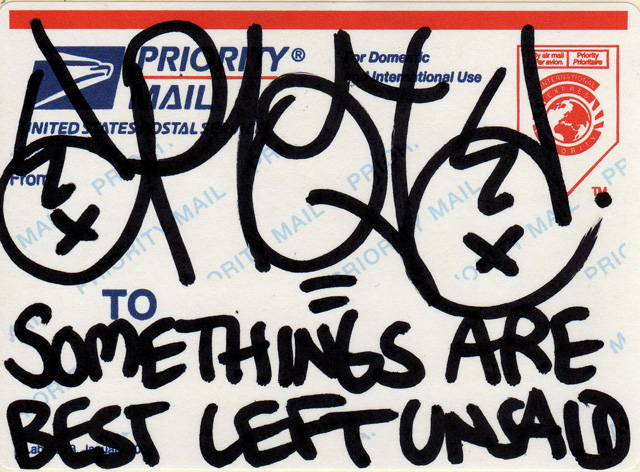

S.O.S. 2 (Sick of Society) is available online at Carnagenyc.com in person at Desert Island Books in Williamsburg, Brooklyn, at Scumbags and Superstars in Bushwick, Brooklyn and Reed Space in the Lower East Side.
The zine and others will be for sale at the Carnage/SubCulture/Ekg table at the MoMA PS1 NY Art Book Fair this weekend!
Photos courtesy of Droid and by Rhiannon Platt
